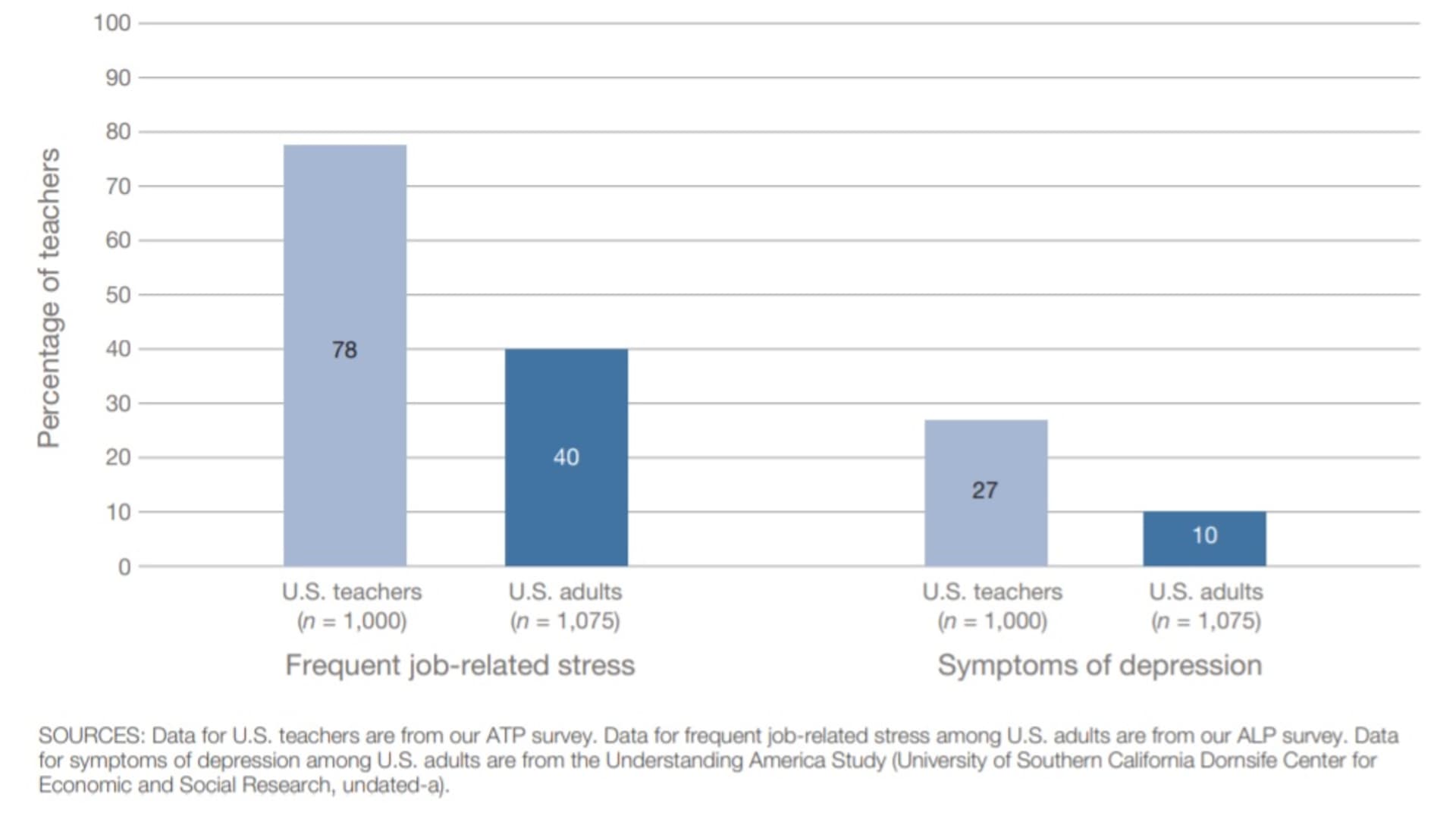
The Facebook group "Teaching During COVID-19" has over 134,500 members. The page was created on March 14th, 2020 "to serve as a resource for teachers to share lesson ideas, student connection ideas and to support each other as we face something in education we've never experienced before."
One of those members is Henry Rivera Leal, 32. Rivera Leal began teaching English at Chalmette High School in St. Bernard Parish, Louisiana in August 2015. He says he loves teaching and prides himself on trying to be "a positive male role model of color" for students. "I wanted to help. I wanted to be a part of the solution," he says.
In Sept. 2020, he resigned.
Since March 2020, teachers have been on the front lines of addressing some of the most serious social implications of the coronavirus pandemic. Many teachers shifted between teaching in-person and online, raised crucial awareness about issues such as childhood hunger and inequality and have become political pawns in pandemic precaution and race relation debates.
Get top local stories in Philly delivered to you every morning. >Sign up for NBC Philadelphia's News Headlines newsletter.
For many teachers, the stress has been too much.
Before the pandemic, researchers estimated that one out of six American teachers was likely to leave the profession. New survey data from the nonprofit RAND Corporation suggests that now one out of four teachers is considering quitting after this school year.
Nearly half of teachers who identified as Black or African American reported that they were likely to leave their jobs by the end of the school year — a significantly higher percentage than teachers of other races.
Money Report
Preexisting pressures
"It's not exactly clear when these people will leave their jobs, if ever, but it does provide some detail about their level of stress and potential dissatisfaction with their working environment and working conditions," says Elizabeth D. Steiner, co-author of the report and policy researcher for RAND. "Teachers were almost twice as likely to report that they were experiencing frequent job-related stress as the general employed adult population. And about three times as many teachers said that they were experiencing symptoms of depression as the general adult population."

Respondents cited pandemic-related stress, health concerns and a lack of child care for their own kids among reasons for wanting to leave the profession.
Steiner adds that "Teaching was also a stressful occupation before the pandemic."
"We tend to pretend like everything was perfect before February of 2020," says Nela Richardson, chief economist of human resource management firm ADP. But she points out that in 2019 there were massive teacher strikes where teachers protested for better pay and resources for students.
Richardson herself is the daughter of a high school teacher.
"My mom taught remotely most of last year, which I was thankful for because of the crisis. She's now back teaching in the classroom. But it's not an easy job, it wasn't before the pandemic, and now the demands have gotten stronger," she says. "Young people, elementary students, middle schoolers, high schoolers, have gone through a year of stress, a year of not being with their peers, a year of not having normal social relationships. And school is the place where all of this is supposed to come together."
"A much more serious problem"
When classrooms transitioned to remote learning in March 2020, when many thought the pandemic would quickly end in a matter of weeks, Rivera Leal says it felt like he could finally catch his breath.
"The most stressful part of teaching for me was always having to be highly alert on my lunch breaks to prevent a fight from happening or stopping a fight," he says. "So in the very beginning, it was actually a bit of a relief because I felt like the school year was already a bit rough. I had a group that had really high levels of trauma and high levels of needs. And I wasn't the only teacher struggling with that."
However, "As time progressed and the worse things got, it was then that I started to realize that we had a much more serious problem."
When he began teaching virtually as few as four students would attend his online classes. Over time, he managed to re-engage his students by giving them time to socialize and talk about the issues they were dealing with. As he taught summer school classes that year, he realized how far behind students were falling.
In August 2020 — around the time of Louisiana's second-biggest Covid case spike and months before the state would be hit hardest by the virus — it was announced that teachers would be required to return to their classrooms that month. Rivera Leal says he couldn't do it anymore.
"There are a lot of punches that I could roll with: working with students who are falling further and further behind, breaking up fights, volunteering for our food drives, volunteering for graduation during Covid. I did all that and I can name countless other things that I did and was willing to do for the community, for our students, for our families," he says. "What I wasn't willing to do is take the risk. I felt like I was being experimented on."
He secured a job training future teachers with Teach For America. The job came with a 27% raise and the opportunity to work virtually.
Rivera Leal says he is not surprised that other teachers are considering quitting given all he's read in the Facebook groups.
"People are posting about how burnt out they are, how frustrated they are, how close to the edge they are," he says. "I think It gets to that point with teachers because we never get in it for the money in the first place. No one goes into teaching thinking that they're going to be making a lot of money. You go into it because it's something that you want to do. And we've reached the point where that's been exploited."
"When you exploit someone to a certain point, people start to reconsider their options."
Don't miss:






